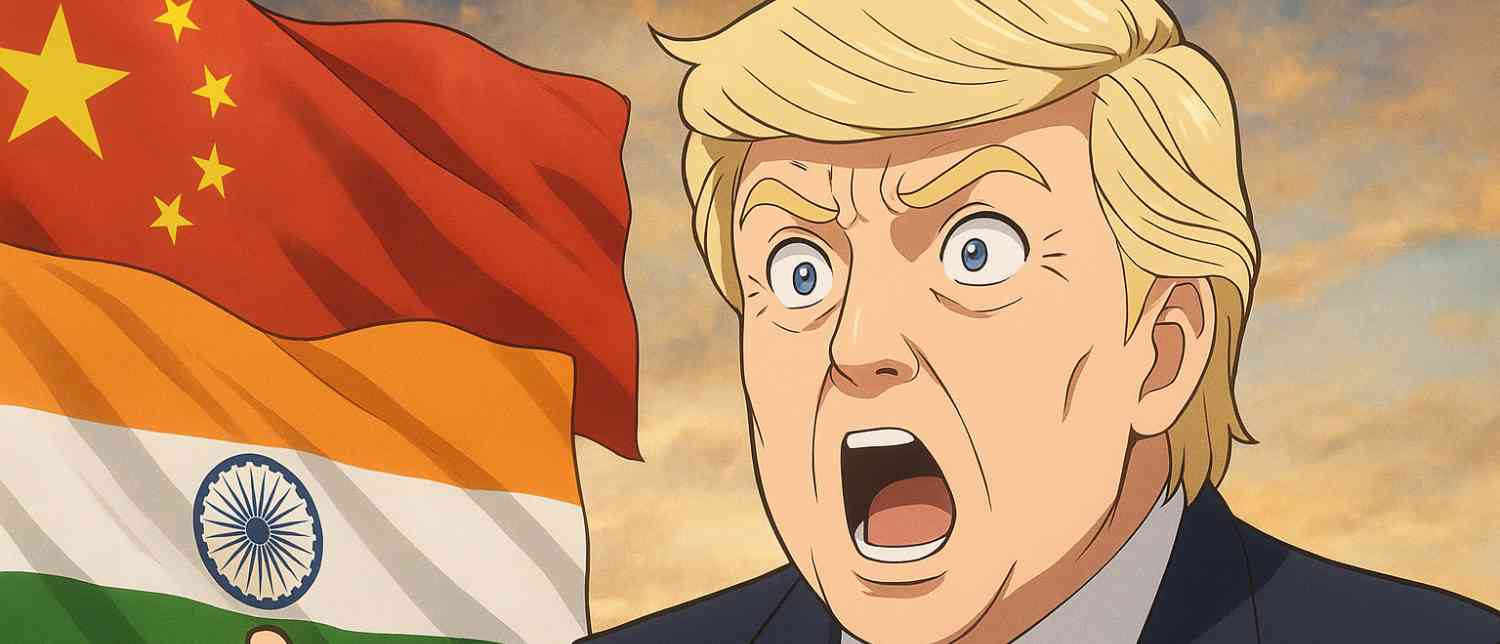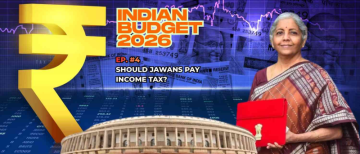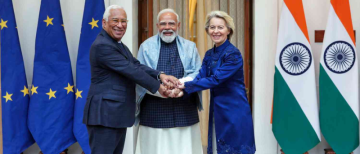In a series of striking remarks and social media posts, US President Donald Trump has stirred controversy over the future of India-US relations, accusing New Delhi of drifting closer to China and Russia. His cryptic statement that the United States has “lost India and Russia to deepest, darkest China” has sparked widespread debate in diplomatic and political circles. The comments come against the backdrop of steep tariffs, disputes over India’s purchase of Russian oil, and shifting global alliances.
While Trump later softened his stance, praising Prime Minister Narendra Modi as a “great leader” and reiterating his “special relationship” with India, the back-and-forth has highlighted the fragile state of bilateral ties between the world’s largest democracies.
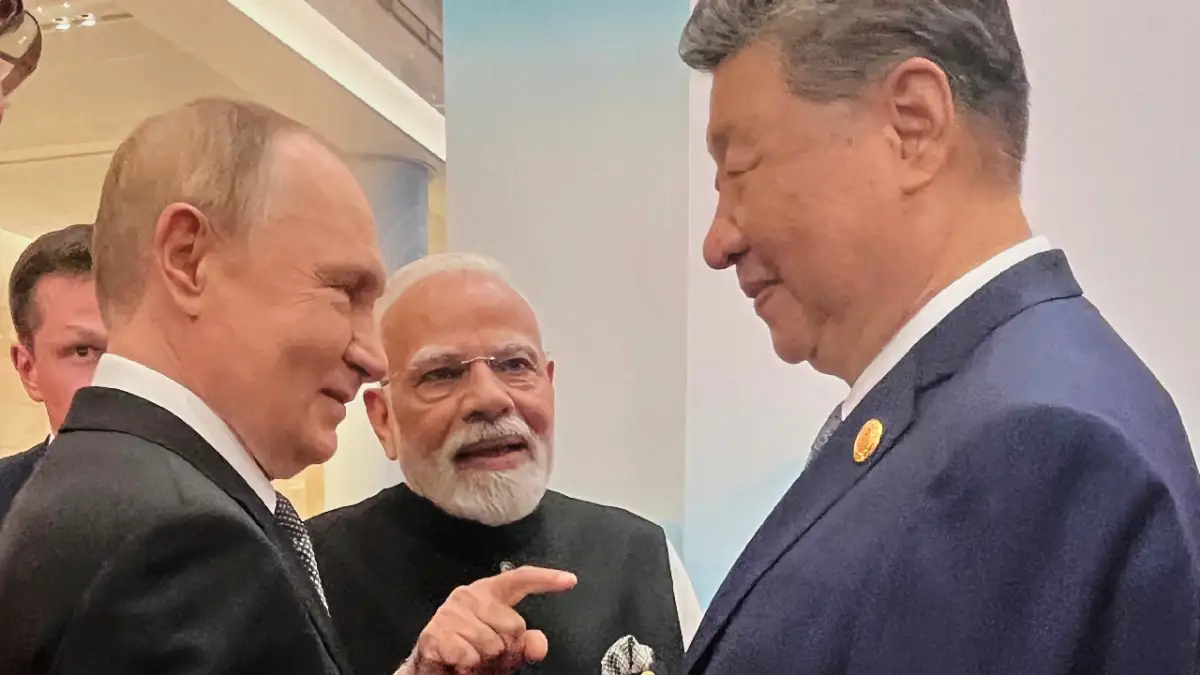
Trump’s Cryptic Post: “Lost India and Russia to Deepest, Darkest China”
On Friday, President Trump posted an unusual message on his social media platform Truth Social, featuring a photograph of Prime Minister Narendra Modi, Chinese President Xi Jinping, and Russian President Vladimir Putin together.
In the caption, Trump declared:
“Looks like we’ve lost India and Russia to deepest, darkest China. May they have a long and prosperous future together!”
The post quickly gained attention, raising questions about whether Washington truly believed New Delhi was aligning more closely with Beijing and Moscow.
At the time, India’s Ministry of External Affairs (MEA) refused to comment directly. MEA spokesperson Randhir Jaiswal tersely responded:
“I have no comments to offer on this post at this time.”
The Trigger: Russian Oil Purchases and Threat of More Tariffs
Trump’s frustration stems largely from India’s continued purchase of Russian crude oil, despite Washington’s efforts to isolate Moscow economically following its invasion of Ukraine.
In recent weeks, Trump had hinted at escalating tariffs against India:
“That cost hundreds of billions of dollars to Russia, you call that no action? Then I have not done Phase-2 yet or Phase-3… Two weeks ago, I said if India buys, India has got big problems, and that’s what happens,” Trump declared.
The US President has already imposed 50% tariffs on Indian goods, including a 25% penalty specifically tied to Russian oil imports. These tariffs have been widely criticized, with an appeals court ruling them unlawful.
On the Scott Jennings Radio Show, Trump complained about India’s trade policies:
“China kills us with tariffs, India kills us with tariffs, Brazil kills us with tariffs. I’ve understood tariffs better than anyone in the world. India was the most highly tariffed nation in the world, and you know what—they’ve offered me no tariffs in India anymore. If I didn’t have tariffs, they would never make that offer. So you have to have tariffs.”
#WATCH | Delhi: MEA Spokesperson Randhir Jaiswal says, "I have no comments to offer on this post at this time." https://t.co/D2KHifBrMs pic.twitter.com/lLrgCGmM7g— ANI (@ANI) September 5, 2025
Trump Backtracks: “I Don’t Think We Have Lost India”
Just hours after his cryptic post, Trump appeared to temper his remarks while speaking to media at the White House.
When asked who he blamed for “losing India to China,” Trump clarified:
“I don’t think we have. I’ve been very disappointed that India would be buying so much oil from Russia. I let them know that. We put a very big tariff on India—50%, a very high tariff. I get along very well with (PM) Modi, as you know. He was here a couple of months ago, in fact, we went to the Rose Garden and had a press conference.”
The shift from confrontation to reassurance was notable, signaling Trump’s desire to preserve personal ties with Modi even while pressing hard on trade and energy disputes.
The SCO Summit and the Optics of Modi with Putin and Xi
Trump’s remarks were triggered in part by the recent Shanghai Cooperation Organisation (SCO) Summit in Tianjin, where Modi, Putin, and Xi were photographed together.
The imagery fueled speculation about a growing India-Russia-China axis, especially in the midst of Washington’s tariff war and geopolitical rivalries. Some commentators described the summit as a “turning point” in global alignments and even a glimpse of a “new world order.”
For Washington, the optics were troubling. Yet New Delhi has maintained that its relationships with different countries stand on their own merit and should not be viewed through the prism of third-party rivalries.
White House Advisors Echo Trump’s Concerns
Trump’s aides have echoed his disappointment with India’s stance.
-
Peter Navarro, Senior Counsellor for Trade and Manufacturing, accused India of profiteering from Russian oil and claimed its tariffs cost “American jobs.”
-
Kevin Hassett, White House Economic Advisor, told ANI:
“The trade team and the President are disappointed that India continues to fund Russia’s Ukraine war… Hopefully, it’s a democratic issue, and we’ll have positive developments.”
Commerce Secretary Howard Lutnick went even further, warning:
“If India doesn’t support the US, they will have to pay 50% tariffs on exports to the US. I expect India to return to negotiations for a bilateral trade deal. They’re going to say they’re sorry and try to make a deal with Donald Trump.”
These sharp words underscored the hardball approach of the Trump administration, which contrasts with India’s measured, non-committal responses.
Trump Softens: “Modi is a Great Prime Minister”
Despite the tariffs and public criticism, Trump has gone out of his way to emphasize his personal admiration for Modi.
He told reporters:
“I always will. I’ll always be friends with (PM) Modi. He’s a great Prime Minister. I’ll always be friends, but I just don’t like what he is doing at this particular moment. But India and the United States have a very special relationship. There is nothing to worry about.”
He also recalled his recent meeting with Modi:
“He was here a couple of months ago. In fact, we went to the Rose Garden, the grass was so soaking wet, it was such a terrible place to have a news conference…”
The remarks suggested that while trade disputes may cause tension, Trump sees Modi as a valuable partner and ally.
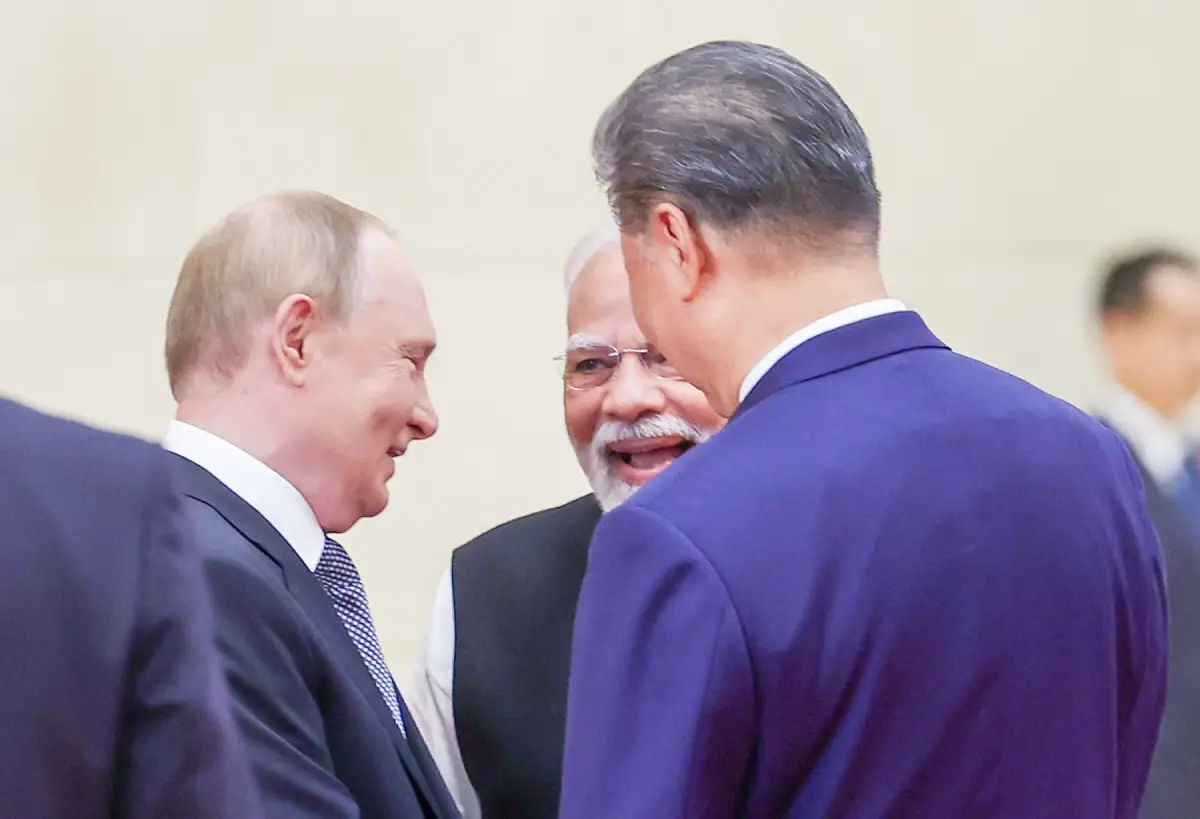
Modi’s Response: Reaffirming the India-US Partnership
Prime Minister Modi responded warmly to Trump’s softened tone. On Saturday, he posted:
“Deeply appreciate and fully reciprocate President Trump’s sentiments and positive assessment of our ties. India and the US have a very positive and forward-looking Comprehensive and Global Strategic Partnership.”
External Affairs Minister S. Jaishankar echoed this, stating that Modi attaches “enormous importance” to ties with the US. He noted that Modi has “always had a very good personal equation with President Trump.”
The Indian position has remained clear: New Delhi will pursue relations with Washington but will also maintain its strategic autonomy, including continuing its engagement with Russia.
The Broader Context: Strained India-US Ties
The friction over tariffs and Russian oil has pushed India-US ties to their lowest point in two decades. The downturn has been unusually public, fueled by Trump’s candid social media posts and fiery comments from White House advisers.
India has countered by rejecting criticisms as “inaccurate and misleading.” At the same time, officials have stressed that New Delhi remains engaged with Washington on trade talks.
Behind the tensions lies a deeper frustration in Washington—India’s refusal to bow to US pressure on Russia, which undermines Western sanctions and complicates the war in Ukraine.
A History of Highs and Lows
Trump and Modi last spoke on June 17, following the G7 Summit in Canada, where they missed an in-person meeting. That call lasted 35 minutes and was initiated at Trump’s request.
Despite personal warmth, trade has been a sticking point throughout Trump’s presidency. He has repeatedly accused India of maintaining the “highest tariffs in the world” and has used tariffs as leverage to force concessions.
On the geopolitical front, Trump once claimed he brokered a ceasefire between India and Pakistan—an assertion New Delhi quickly dismissed. India has consistently rejected third-party mediation in its disputes with Pakistan.
A Relationship at the Crossroads
President Trump’s dramatic declaration that the US had “lost India and Russia to deepest, darkest China” may have been quickly walked back, but it highlighted the fragile balance in India-US relations.
On one hand, Washington and New Delhi share a strategic partnership, bolstered by defense cooperation, shared democratic values, and growing people-to-people ties. On the other, disputes over trade, tariffs, and Russian oil have strained the relationship to its lowest point in years.
Trump’s oscillation—from sharp criticism to warm praise of Modi—reflects the complex, transactional nature of his foreign policy. For India, the challenge remains navigating ties with the US while preserving its independent foreign policy and maintaining relations with Russia and China.
As both nations weigh their next steps, one thing is clear: the India-US partnership remains too important to collapse, but it is entering a turbulent phase where economic friction and geopolitical rivalry will test its durability.
With inputs from agencies
Image Source: Multiple agencies
© Copyright 2025. All Rights Reserved. Powered by Vygr Media.

